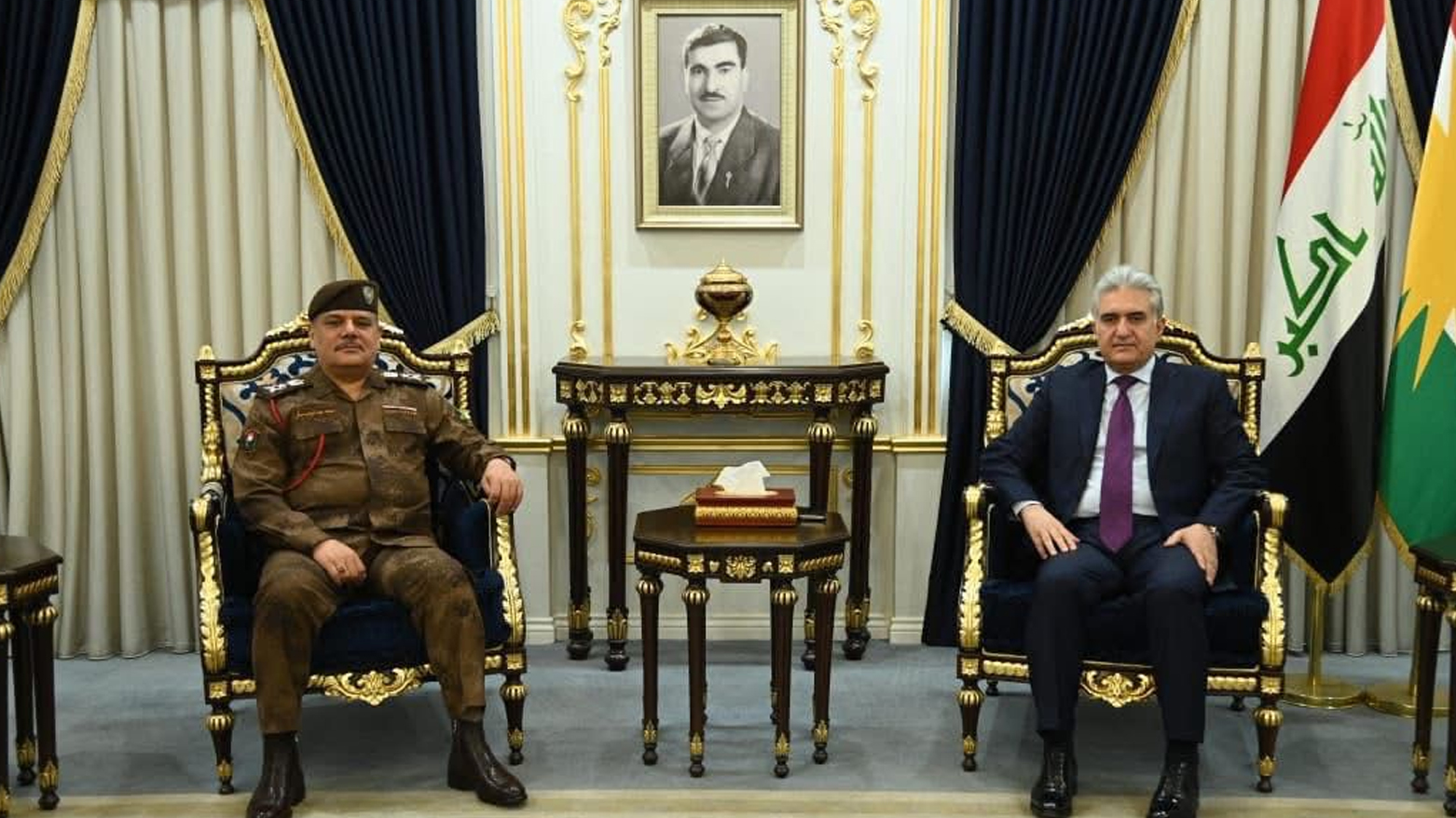KRG Interior Minister, Iraqi Border Commander Discuss Border Security Coordination
According to an official statement, both parties emphasized the need for increased field cooperation and intelligence-sharing to ensure a rapid response to transnational threats and reinforce stability in the border zones.

ERBIL (Kurdistan24) — In a move aimed at strengthening border security and enhancing inter-agency cooperation, Kurdistan Region’s Minister of Interior Reber Ahmed met with Iraq’s Border Forces Commander, Lieutenant General Mohammed Abdulwahab Sukkar, on Monday in Erbil to discuss greater coordination on cross-border challenges.
The meeting took place at the Kurdistan Region Ministry of Interior headquarters in Erbil and centered on ways to expand joint security operations — particularly along the Region’s First Border Area, a critical zone bordering neighboring countries prone to illegal crossings, smuggling, and infiltration by militant groups.
According to an official statement, both parties emphasized the need for increased field cooperation and intelligence-sharing to ensure a rapid response to transnational threats and reinforce stability in the border zones.
The Kurdistan Region shares hundreds of kilometers of rugged, often porous borders with Iran, Turkey, and Syria, making it a frontline region for managing a host of complex security threats. These include cross-border smuggling, PKK-Turkey military tensions, and occasional militant incursions, particularly from remnants of ISIS hiding in ungoverned zones.
While the Kurdistan Regional Government (KRG) maintains its own Peshmerga forces and internal security apparatus, though, the KRG occasionally cooperates with federal Iraqi forces, including the Border Guards Command, in certain areas for certain security operations, to achieve particular targeted objectives.
The officials underlined the urgency of sustained direct coordination, proposing continued high-level meetings and technical working groups to streamline border surveillance, respond swiftly to threats, and improve operational readiness across both security institutions.